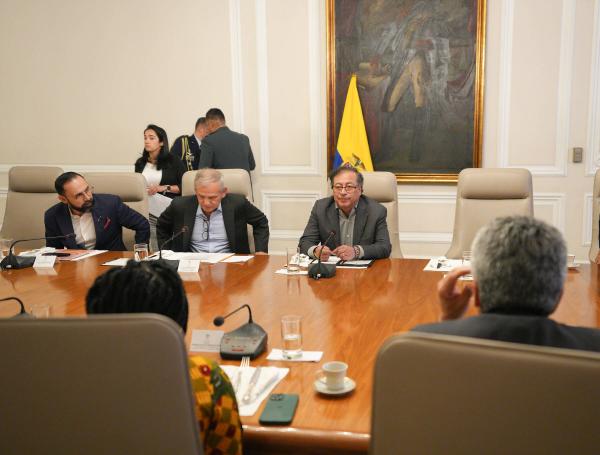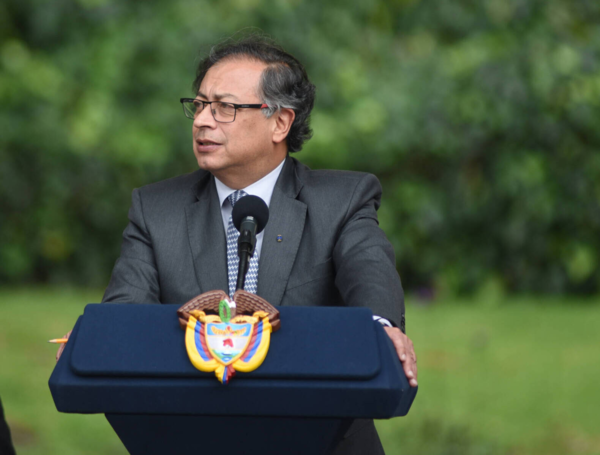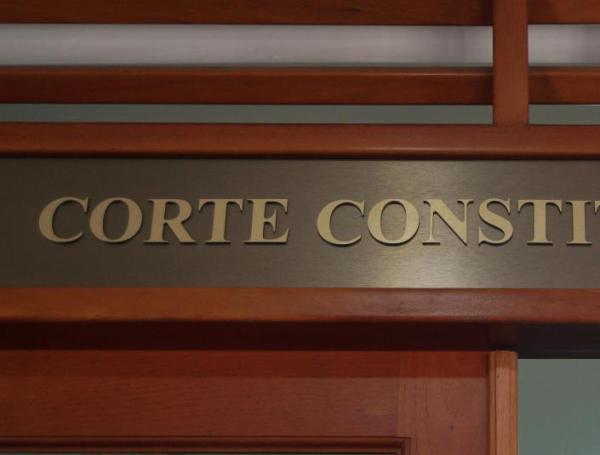The Constitutional Court overturned the ruling of the Council of State and ordered President Gustavo Petro to retract and publicly apologize to the female journalists for calling them"mafia dolls" during the inauguration of the Ombudsman, Iris Marín Ortiz, on August 30, 2024.
At the event, the head of state said,"Those young people were taken to prison by the thousands. The same people who today hypocritically talk about Venezuela and dictatorships there, multiplied by three what they did in Colombia three years ago. Hypocrites! They see dictators outside but they don't see their own dictatorship and their own rottenness inside. Good for the young people who protest there, but bad for the young people who protest here. The journalists of power, the dolls of the mafia, constructed the thesis of terrorism in the protest and the criminalization of the genuine right to protest and to say"enough!"

In the decision, written by Judge Lina Marcela Escobar Martínez, the high court overturned the rulings of the Council of State that had denied the writs of protection filed by Germán Calderón España and the affected journalists, and instead ordered the president to publicly retract and apologize for the statements made in his speech.
"Order the President of the Republic, Gustavo Petro Urrego, that within five (5) days from the notification of this ruling, both in the video containing his speech and in its transcription, he include a clarifying note stating that the statements that associate the journalists with mafia dolls and point them out as responsible for having constructed the thesis of terrorism in the protest and the criminalization of the genuine right to protest were not adequate, in the terms of this sentence", it says.
The Court requires the head of state to refrain from issuing messages or publications that violate the rights of the plaintiffs or women journalists in general to non-discrimination and a life free from gender-based and digital violence.

The court's ruling comes in the context of two tutela actions filed by the Council of State. In one of them, the journalists alleged that the president's statements had been stigmatizing, violent, and discriminatory, linking them to criminal organizations and delegitimizing their reporting work.
The Constitutional Court stated that public servants must act with special diligence when exercising their right to freedom of expression, and emphasized that the President of the Republic, in his capacity as head of state, head of government, and supreme administrative authority, has a constitutional and international duty to prevent, punish, and eradicate all forms of violence against women, including symbolic and digital violence.
For the Plenary Chamber, the epithets used by the president “constituted a form of symbolic violence and stigmatizing language that perpetuated discrimination against women journalists,” which is not protected by freedom of expression.
In its analysis, the Court highlighted the special risk faced by women journalists, who are more vulnerable to gender-based violence, both in physical and digital settings.

The ruling was accompanied by clarifications from Justices Jorge Enrique Ibáñez Najar and Carlos Camargo Assis. Ibáñez considered the ruling a step forward in the protection of women journalists against symbolic violence and discrimination, although he believed the Court should have deepened its analysis in light of international treaties such as the Belém do Pará Convention and CEDAW, and even extended the effects of the decision to all women journalists facing similar situations ("inter-communal effects").
For his part, Judge Camargo emphasized the heightened responsibility of public servants—and especially the president—when speaking publicly. He noted that the freedom of expression of high-ranking officials is determined by the impact of their words and that, in contexts of polarization, speeches emanating from the executive branch can foster hostile or exclusionary environments.

